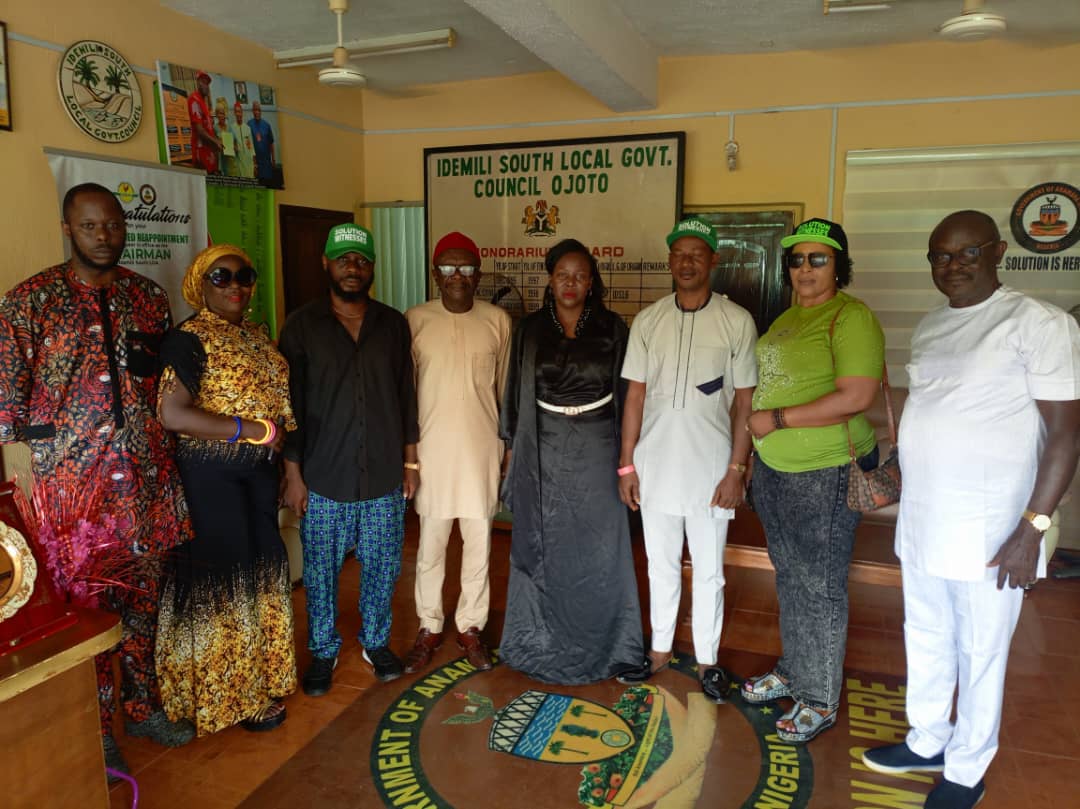Airtel Nigeria’s Industrywide Workshop Empowers BFSI , Utility Sectors With Innovation Strategies

By Winifred Bosa


By Winifred Bosa
 Dr Zacch Adedeji, Executive Chairman/CEO, FIRS
Dr Zacch Adedeji, Executive Chairman/CEO, FIRS
The Federal Inland Revenue Service (FIRS) has concluded plans to host a two-day national conference on Illicit Financial Flows (IFFs) in its efforts to safeguard Nigeria’s financial integrity through tackling the menace which adversely impacts revenue collection.
According to a statement by Dare Adekanmbi, Special Adviser on Media to the FIRS chairman, Dr Zacch Adedeji, the conference will be held between July 22 and 23.
The high-level gathering has the theme “Combating Illicit Financial Flows: Strengthening Nigeria’s Domestic Resource Mobilisation,” and will be held at the Transcorp Hilton Hotel, Abuja.
The statement said the conference will serve as a platform for reflection on actionable solutions, reinforcing the Federal Government’s commitment to protecting financial integrity and ensuring that domestic revenue is fully harnessed for national development.
The event will bring together experts from various fields, including policymakers, tax administrators, law enforcement agencies, anti-corruption agencies, financial experts, and international stakeholders.
A key member of the United Nations High Level Panel on IFFs, also known as the FACTI Panel, Honourable Irene Ovonji-Odida, will deliver a keynote address, while the Minister of State for Finance, Dr Doris Uzoka-Anite, will chair the conference.
The statement quoted Adedeji as saying that the conference will spotlight the agency’s “intensified efforts in tackling IFFs, including strengthening compliance mechanisms, enhancing beneficial ownership transparency, and leveraging technology to detect and deter tax evasion, trade mispricing, and other illicit outflows.”
“Before now, we have set in motion machinery to tackle IFFs by approving capacity building programmes for staff members of the agency on how to identify and block IFFs, and to increase revenue collection from the multinational corporations.
“In sustaining this, we also approved the establishment of Proceeds of Crime Management and Illicit Financial Flows Coordinating Directorate (POCM-IFF), which is pivotal to addressing the menace. Taxes play a very strategic role in the nation’s economy.
“Before now, the Federal Government of Nigeria had established an Inter-Agency Committee on Stopping IFFs from Nigeria in its efforts to curb the illicit flows. The committee comprises FIRS, Nigerian Financial Intelligence Unit, Independent Corrupt Practices and Other Related Offences Commission, Economic and Financial Crimes Commission, Nigeria Customs Service, Central Bank of Nigeria, and Securities and Exchange Commission, among others.
Ovonji-Odida, has expressed the hope that the conference will result in increased understanding of IFFs and commitment to action which is needed to curb it.


 LarryBravo Nwaiwu
LarryBravo NwaiwuBy Winifred Bosa


As preparations intensify for the maiden edition of the Brand Handlers Summit 2025, Marketing Space magazine has unveiled some of Nigeria’s brightest minds in marketing, branding, and communications, who will come together to chart a path forward in advancing brand and marketing excellence in Nigeria.
The event, themed “Advancing Nigeria’s Marketing Ecosystem to Drive Brand Growth,” is scheduled to hold at the prestigious Regency Hall, Alausa, Lagos.
This year’s summit, powered by Marketing Space, is designed to celebrate the visionaries behind Nigeria’s most impactful brands and to explore how organisations can elevate their strategic marketing efforts amid a rapidly evolving consumer landscape. With a thoughtfully curated lineup of keynote addresses, panel discussions, and networking opportunities, the summit promises to serve as a pivotal moment of reflection and strategy for marketing professionals across various sectors.
According to Lukman Ishau, Publisher of Marketing Space and Convener of the Brand Handlers Summit, “The Brand Handlers Summit & Awards is more than just an event, it is a platform for discourse and a stage for recognising those who shape perception, influence consumer choice, and build enduring brands. We are intentional about creating a space where top-level executives and brand custodians can share insights and collaboratively redefine the future of marketing in Nigeria.”
The event will be chaired by Udeme Ufot, MFR, Group CEO of SO&U Limited, while the keynote address will be delivered by Stephen Onaivi, Managing Director of mediaReach OMD, and renowned media executive Clara Okoro, COO of BrandWorld Media, will moderate the panel session.
The panel will feature strategic insights from respected industry leaders, including Kayode Olagesin, Managing Director of Towncriers Limited; Kayode Ebatamehi, Managing Director of Bluebird Communications; Victoria Uwadoka, Head of Corporate Communications and Public Affairs at Nestlé Nigeria; and Roseline Abaraonye, Marketing Director of Imperio Nigeria Ltd. Together, they will examine the roles of leadership, storytelling, and technology in shaping marketing outcomes for brands operating in Nigeria’s competitive landscape.
Speaking further on the summit’s goals, Micheal Efengbe, Project Coordinator of the Brand Handlers Summit & Awards, remarked, “We have designed this summit to be a high-level conversation where marketing leaders and decision-makers can come together to share real solutions, not just ideas. It’s about bridging knowledge gaps, sparking collaboration, and unlocking new growth opportunities for brands.”
Beyond the engaging sessions, the summit will also serve as a platform to honor individuals and institutions whose contributions continue to elevate Nigeria’s marketing industry, setting benchmarks for professionalism, creativity, and impact.
The event will kick off at 3:00 PM at Regency Hall, 1 Otunba Jobi-Fele Way, CBD, Alausa, Ikeja, Lagos. For participation or sponsorship inquiries, interested stakeholders are encouraged to contact 07030909516 or 08073102434.
Join the conversation online using the hashtags #BrandHandlers2025, #MarketingSpace, and #BrandExcellence, and be part of a defining moment in Nigeria’s marketing evolution.


As preparations intensify for the maiden edition of the Brand Handlers Summit 2025, Marketing Space magazine has unveiled some of Nigeria’s brightest minds in marketing, branding, and communications, who will come together to chart a path forward in advancing brand and marketing excellence in Nigeria.
The event, themed “Advancing Nigeria’s Marketing Ecosystem to Drive Brand Growth,” is scheduled to hold at the prestigious Regency Hall, Alausa, Lagos.
This year’s summit, powered by Marketing Space, is designed to celebrate the visionaries behind Nigeria’s most impactful brands and to explore how organisations can elevate their strategic marketing efforts amid a rapidly evolving consumer landscape. With a thoughtfully curated lineup of keynote addresses, panel discussions, and networking opportunities, the summit promises to serve as a pivotal moment of reflection and strategy for marketing professionals across various sectors.
According to Lukman Ishau, Publisher of Marketing Space and Convener of the Brand Handlers Summit, “The Brand Handlers Summit & Awards is more than just an event, it is a platform for discourse and a stage for recognising those who shape perception, influence consumer choice, and build enduring brands. We are intentional about creating a space where top-level executives and brand custodians can share insights and collaboratively redefine the future of marketing in Nigeria.”
The event will be chaired by Udeme Ufot, MFR, Group CEO of SO&U Limited, while the keynote address will be delivered by Stephen Onaivi, Managing Director of mediaReach OMD, and renowned media executive Clara Okoro, COO of BrandWorld Media, will moderate the panel session.
The panel will feature strategic insights from respected industry leaders, including Kayode Olagesin, Managing Director of Towncriers Limited; Kayode Ebatamehi, Managing Director of Bluebird Communications; Victoria Uwadoka, Head of Corporate Communications and Public Affairs at Nestlé Nigeria; and Roseline Abaraonye, Marketing Director of Imperio Nigeria Ltd. Together, they will examine the roles of leadership, storytelling, and technology in shaping marketing outcomes for brands operating in Nigeria’s competitive landscape.
Speaking further on the summit’s goals, Micheal Efengbe, Project Coordinator of the Brand Handlers Summit & Awards, remarked, “We have designed this summit to be a high-level conversation where marketing leaders and decision-makers can come together to share real solutions, not just ideas. It’s about bridging knowledge gaps, sparking collaboration, and unlocking new growth opportunities for brands.”
Beyond the engaging sessions, the summit will also serve as a platform to honor individuals and institutions whose contributions continue to elevate Nigeria’s marketing industry, setting benchmarks for professionalism, creativity, and impact.
The event will kick off at 3:00 PM at Regency Hall, 1 Otunba Jobi-Fele Way, CBD, Alausa, Ikeja, Lagos. For participation or sponsorship inquiries, interested stakeholders are encouraged to contact 07030909516 or 08073102434.
Join the conversation online using the hashtags #BrandHandlers2025, #MarketingSpace, and #BrandExcellence, and be part of a defining moment in Nigeria’s marketing evolution.



The Pension Transitional Arrangement Directorate (PTAD) has reiterated its commitment to protection of Pensioners’ rights and their wellbeing.
To this end, the Directorate said, it has introduced various initiatives aimed at actualising its mandate which is to manage pension benefits for Federal Government retirees under the old Defined Benefit Scheme(DBS), who did not transit to the Contributory Pension Scheme (CPS).
Speaking at the 2024/2025 Annual General Meeting (AGM) of the Nigerian Association of Insurance and Pension Editors (NAIPE) sponsored by PTAD in Lagos, the Executive Secretary/CEO, Mrs. Tolulope Odunaiya, highlighted the mandates of the Directorate and their achievements so far.
Odunaiya, who was represented at the occasion by the Head, Corporate Communication, Mr. Olugbenga Ajayi and Head, Lagos Regional Office, Mr. Casmir Audu said, the Directorate is fully committed to protecting the pensioners’ rights to pension as well as their wellbeing.
Mr. Ajayi said, the Directorate was specifically established to handle pensions of those who did not move to the Contributory Pension Scheme, noting that, PTAD’s mandate is to ensure that eligible pensioners receive their due pension payments promptly and accurately.
“Since establishment of PTAD in 2013, and up till this present moment, PTAD has never failed to pay pensions every month, that is why we have been able to take pensioners out of the streets; that is one of the credibility the present government is enjoying because nobody is diverting money meant for payment of pensions anymore,” he said.
He stated that, the Directorate has continued to introduce various initiatives to enhance its efficiency and effectiveness, some of which are; Field Verification, I Am Alive Confirmation, Mobile Verification, among others.
“As we progressed, we discovered that we shouldn’t be calling our fathers and mothers, especially, those from far distance to come and do verification here in Lagos and a technology was introduced. We call that technology ‘I Am Alive’ Confirmation. Why do we call it ‘I Am Alive’? Because pension under DBS is for life. Once you are still alive, you are entitled to your pension. I Am Alive enable pensioners to confirm their status even inside their home at every location. This is done through internet-enabled phone and anybody can help you do it. Once you confirm your aliveness status, in the next six month, your pension will continue to run.
“We have introduced Mobile Verification for people who are sick, or those who are alive but are incapacitated to attend normal verification, we schedule mobile confirmation for those who have done Am Alive verification but later falls sick,” he added.
Mr. Ajayi disclosed that PTAD is a federal government treasury funded agency with no commercial bank account, adding that, their responsibility is to prepare schedules of pension payment.
“PTAD don’t have any account in any Commercial Bank so we don’t keep any money because we are treasury funded agency. Pensions are paid by Central Bank and are paid directly into pensioners account. Our duty is to prepare the schedules of payment and it will pass through various tables including Federal Auditors, Internal Auditors, Accountant General Office, so it is not something that somebody will just wake up and say PTAD has money somewhere,” he explained.
He said, PTAD is ensuring that nobody tampers with pensioners’ money. PTAD offices are in 13 States of the country.